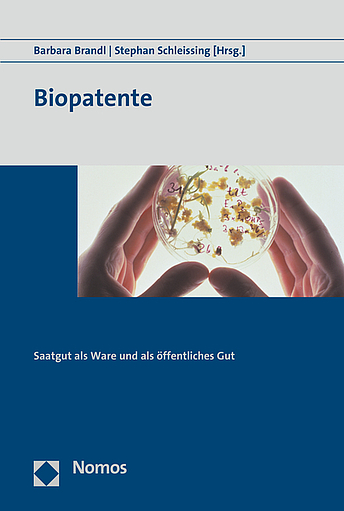englischThe cultivation of seeds plays a central role in the welfare development of mankind. Which incentives will stimulate the biotechnological development and breeding of high-yielding crops in the future? Intellectual property rights play a key role in this context. An exclusive but temporary right of use enables the refinancing of research and development. Nevertheless, there is an intensive and controversial discussion about patents on seeds. Do they encourage investment and progress, or do they hamper competition? What impact do they have on biodiversity, world nutrition and equitable agriculture?
This volume contains 18 articles which were discussed at an interdisciplinary summer school organised by the Institute of Technology-Theology-Science at the University of Munich.
With contributions by:
Hélène Berlincourt, Barbara Brandl, Eva Gelinsky, Maria K. Gerullis, Christine Godt, Rafael Häcki, Gregor Kaiser, Hansjörg Küster, Bettina Müller, Sebastian Pfeilmeier, Andreas Popp, Viola Prifti, Birger P. Priddat, Kathrin Reuter, Zoe Robaey, Stephan Schleissing, Axel Siegemund, Michael Stephan und Cristian Timmermann
Für die Wohlfahrtsentwicklung der Menschheit spielt die Kultivierung von Saatgut eine zentrale Rolle. Doch welche Anreize sorgen dafür, dass die biotechnologische Entwicklung und Züchtung von ertragsstarken Sorten bzw. einzelner Pflanzen vorangeht? Ein zentraler ökonomischer Anreiz ist der Schutz geistigen Eigentums. Durch ein zeitlich befristetes Monopol an der Nutzung ihrer Erfindung gibt das Wettbewerbsrecht Innovatoren die Möglichkeit, ihre Investitionen in Forschung und Entwicklung zu refinanzieren. Zugleich wird die Patentierung von Saatgut seit geraumer Zeit kontrovers diskutiert. Wie vertragen sich solche Biopatente mit Biodiversität, Welternährung und gerechter Landwirtschaft?
Der Band versammelte Beiträge einer interdisziplinären Klausurwoche, zu der das Institut Technik-Theologie- Naturwissenschaften an der LMU München im Herbst 2014 ins Studienhaus Gut Schönwag eingeladen hatte.
Mit Beiträgen von:
Hélène Berlincourt, Barbara Brandl, Eva Gelinsky, Maria K. Gerullis, Christine Godt, Rafael Häcki, Gregor Kaiser, Hansjörg Küster, Bettina Müller, Sebastian Pfeilmeier, Andreas Popp, Viola Prifti, Birger P. Priddat, Kathrin Reuter, Zoe Robaey, Stephan Schleissing, Axel Siegemund, Michael Stephan und Cristian Timmermann


